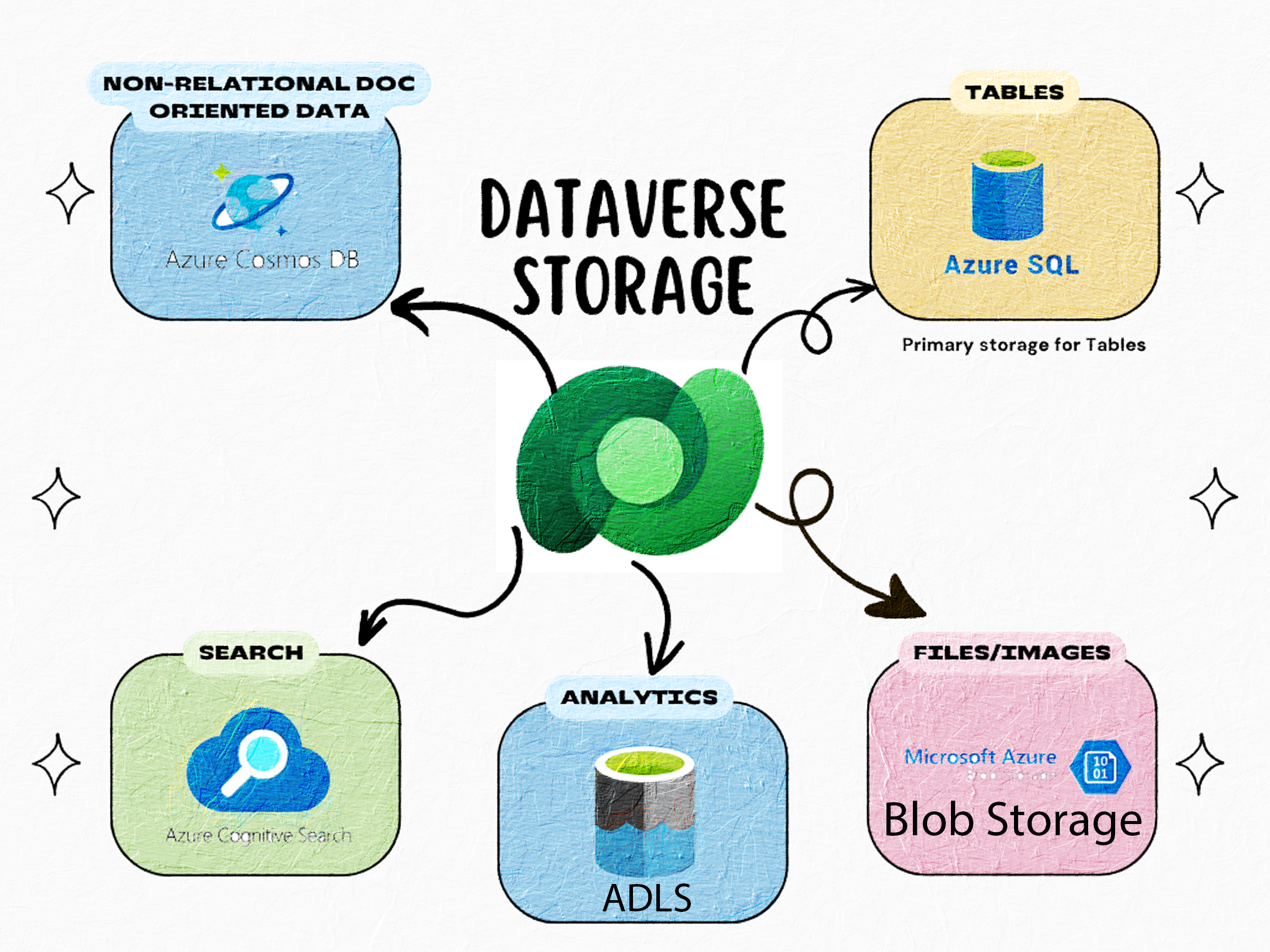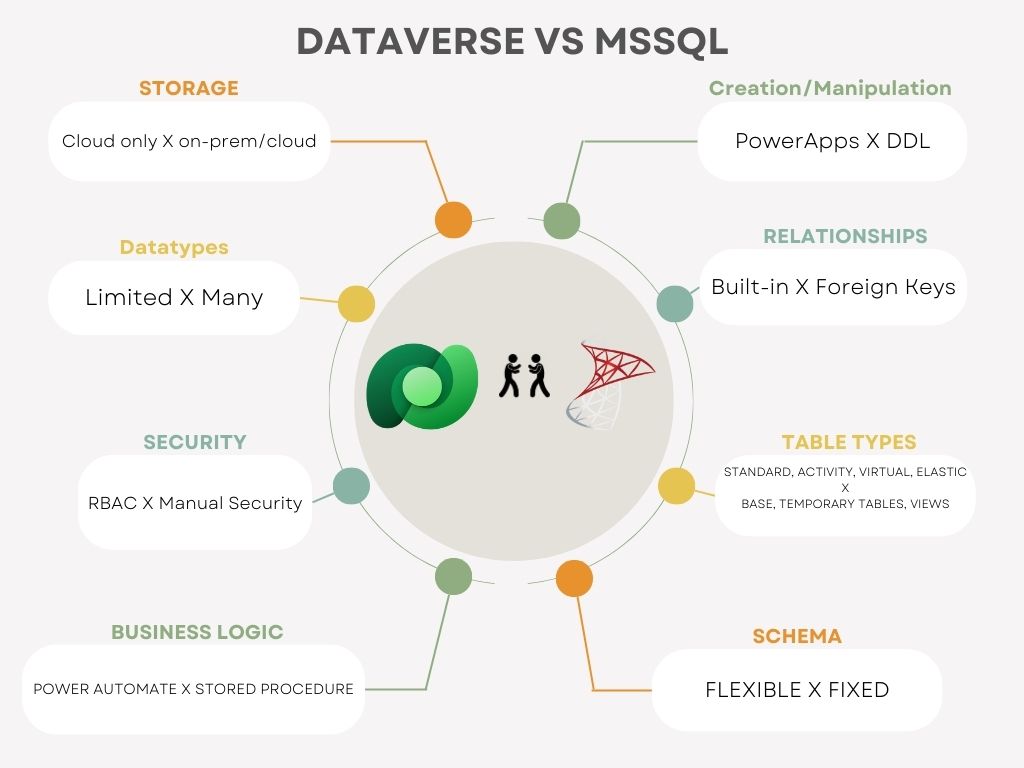- What is Dataverse?
- What are Dataverse verions?
- Dataverse Storage - behind the scenes
- Dataverse vs. MSSQL Tables: A Quick Comparison
What is Dataverse?
Dataverse is Power Platform’s Database - for simplicty.
What are Dataverse verions?
- Microsoft Dataverse: Premium edition. Requires PowerApps subscription.
- Dataverse for Teams: Free edition.
Dataverse Storage - behind the scenes

Dataverse vs. MSSQL Tables: A Quick Comparison
Hello readers! Hope you had a wonderful day. Today, let’s explore one of the important aspects of Power Platform: Dataverse. How does it differ from other options like MSSQL? What’s its importance? Let’s find out!
Long story short
Dataverse and MSSQL, while both store data in tables within the Microsoft ecosystem, there are many differences between them. Here is a quick breakdown to help you understand the key differences:
| Feature | Dataverse | MSSQL |
|---|---|---|
| Schema | Flexible | Fixed |
| Data Types | Various (complex included) | Similar (granular control) |
| Relationships | Built-in | Foreign Keys |
| Data Manipulation | User-friendly interface (low-code) | T-SQL (code), Programming languages |
| Security | RBAC (roles), Auditing | Manual setup, Auditing (configuration needed) |
| Table Types | Standard, Virtual, Custom, Elastic (limited) | Base, Temporary, Views, Table-Valued Functions |
| Views | Limited (virtual tables) | Traditional views (complex) |
| Business Logic (Table Level) | Power Automate workflows | Stored Procedures, Triggers |
| Business Logic (Column Level) | Validation Rules, Workflows | Constraints, Triggers |
| Ideal for | User-friendly app development, Built-in security, Power Platform Integration | Complex data management, Granular control, Complex data models |
Table Types: Also, here are some differences between the types of tables allowed in both.
| Feature | Dataverse | MSSQL |
|---|---|---|
| Standard Tables | ✓ | ✓ |
| Virtual Tables (simplified data views) | ✓ | Views (complex data views) |
| Custom Tables (more control) | ✓ | |
| Elastic Tables (large datasets) | ✓ (limited) |
How to choose?
- For Power Platform users, Dataverse stands out as the go-to choice. User-friendly interface and low-code approach make it ideal for simple data models. Built-in security and lots of OOTB tables for various applications will give you a head start. These pre-built tables can be used immediately and further customized for specific needs.
- Alternatively, choose MSSQL if you have a complex data model, want to build things from scratch and want to store a huge volume of data.
